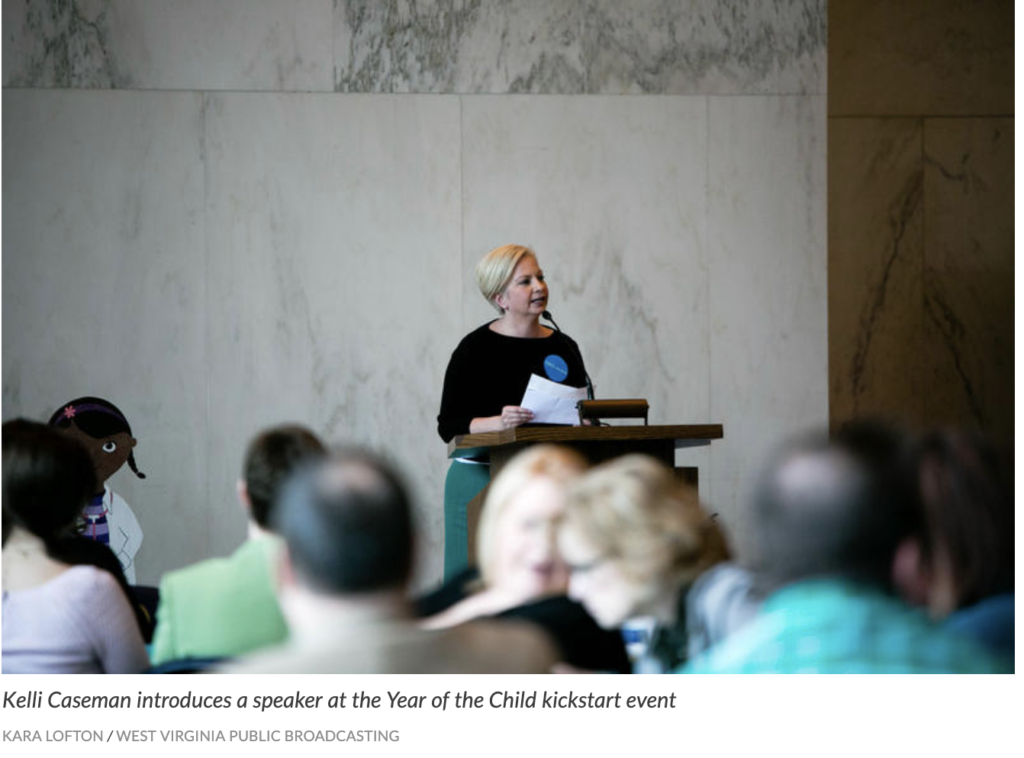Charting Our Own Data-Driven Path
Executive Director, Think Kids

Seth Godin is an author and entrepreneur. He wrote this semi-famous quote, “Please stop waiting for a map. We reward those who draw maps, not follow them.”
I’ve been thinking about this quote and the metaphor of wading through “unchartered territory,” because that’s where I find myself and my home state of West Virginia.
When I became a kids’ health advocate in 2004, my first job was advocating for students with asthma to have the ability to carry their albuterol inhalers with them in school. Back then, this is how we advocated for such things: We created fact sheets with national and state data, wrote petitions, took kids and families to meet their senators and delegates, and cultivated media interest in the issue. In this instance, it worked. A bill was passed. When we won, we had kids write thank you cards for legislators. It was formulaic, effective, rewarding, fun. And it made for a great photo opportunity for policymakers.
Today, I advocate for children affected by the drug crisis—a continuation of the opioid epidemic that now includes increased use of fentanyl, heroin, and methamphetamine. The reverberations of this crisis have had a profound effect on our state’s kids. According to the West Virginia Department of Health and Human Resources, since 2013, there has been a 67% increase in the number of children in state custody, from 4186 to 7000. Nationally, the number of children in foster care has slightly decreased.
These numbers represent the slight tip of an iceberg of uncollected data on how the burden of this crisis is affecting the systems that serve children—health care, child welfare, foster care, public education and the court systems. It’s frightening to me, not only what we don’t know, but that we don’t know what we don’t know. It’s like fighting a monster in the dark.
I’ve struggled to articulate my concerns for a lack of a state strategic plan in op-eds and on social media, and while many stakeholders agree with me, no leaders have emerged to blaze a trail out of this darkness.
It was serendipity when Simon Haeder, my IRL team member, asked me to apply with them to the program. At least, I think that now. At the time, I didn’t really know a lot about the program but had great respect for RWJF.
This is strange, but true. When I first watched the Dr. Nina Wallerstein’s training module on community-based participatory research in the first month of the program, I cried. I really did. I thought, “That’s it! That’s what we’re missing!” Until that moment, I had a very rigid, preconceived idea of what research was, its use, and who collected it. I had been perceiving the problem from the wrong direction. I was advocating for a top-down approach to address the needs of these kids, when what we really need is a ground-up, community-based approach. The paradigm shifted, and it was a powerful change of perception.
And so, over the past year and a half, the IRL program has unfolded for me in really meaningful, applicable ways—not just the professional development, or the networking, but by observing the interplay between researchers and community leaders. It’s not always a comfortable dynamic, but there’s great potential when there’s mutual motivation, aptitude, and respect for one another. Sure, I’m invested in the project itself, but the weekly webinars, for example, with updates from fellow teams—there’s so much to learn and appreciate.
After about six months into the program, I began talking to close colleagues about wanting to approach our work differently. I wanted to advance each project with a standard process—assess, share, plan and act. Together, we decided to start a 501(c)(3) nonprofit organization. On January 1, we launched Think Kids—part think tank, part advocacy, and all in for West Virginia’s kids.
If you’ve never started your own nonprofit, it’s a lot like everything else. The parts I thought would be hard were easy, and the parts I thought would be easy were hard. The paperwork—the filing with the state, IRS, etc., was easy. Not all in the advocacy community have been as supportive. That stung a little.
But in the end, it’s about the kids and my state. Right now, we’re in uncharted territory, and no one seems to know how to chart a path out. For me, the answer is data. Data charts the path out. That’s where we’ll begin.
Thank you, IRL program and RWJF for the opportunity. I’ve embraced it, and it’s made such a difference.
Kelli Caseman | |
Kelli Caseman is both the Executive Director and a founding member of Think Kids. She began working in the nonprofit sector in 1999, advocating for public education, then for kids’ health issues since 2004. Most recently, she served as the Executive Director of the West Virginia School-Based Health Assembly, and as the Director of Child Health for West Virginians for Affordable Health Care.
Read about Team West Virginia’s IRL research project “Improving Health among Youth in Rural Appalachia: Enhancing School-Based Health Centers.”
The views represented in this post are those of the authors, not of Interdisciplinary Research Leaders or the Robert Wood Johnson Foundation.

